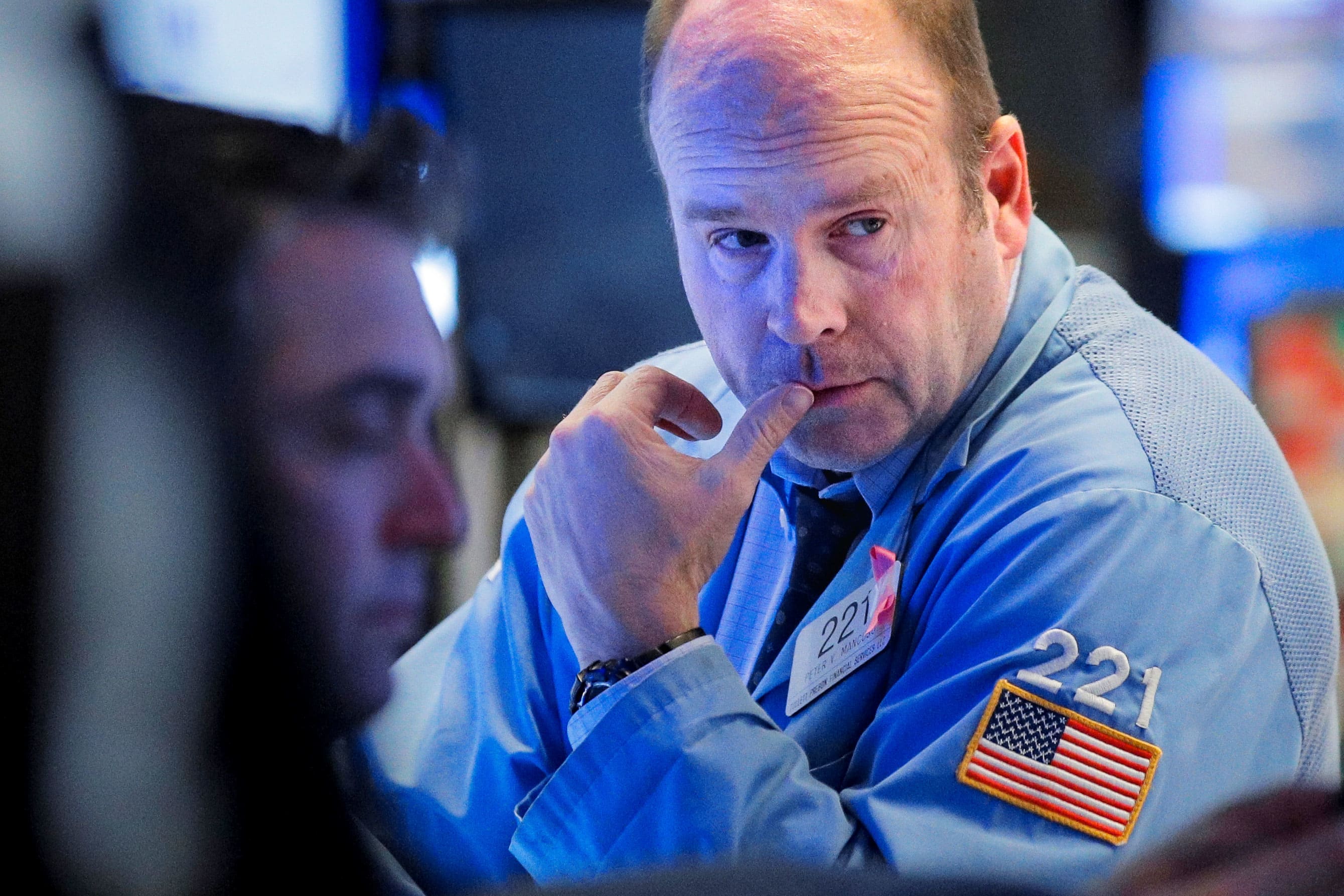
Stock futures pointed to a flat open as Wall Street tries to rebound from its worst week since the financial crisis amid fears of the coronavirus outbreak.
Those flat futures mask what was a volatile overnight session where Dow Jones Industrial Average futures traded in a range of 1,000 points, indicating this week may be as volatile as last week as well.
Around 6:13 a.m. ET Monday, Dow futures were lower by about 20 points, indicated a loss of about 40 points at Monday's open. S&P 500 and Nasdaq 100 futures were mixed.
Dow futures briefly fell more than 500 points in premarket trading before recovering. The Dow, S&P 500, and Nasdaq Composite all fell more than 10% last week, their biggest weekly declines since October 2008. They also entered correction territory, down more than 10% from all-time highs notched earlier in February.
Those declines came after a sharp increase in coronavirus cases outside of China. The number of cases continued to increase over the weekend, including in the U.S.
"The outbreak of Covid-19 has certainly changed the near-term narrative," said Chetan Ahya, global head of economics at Morgan Stanley, in a note to clients Sunday. "It is an untimely shock, considering that the starting point of global growth was weak, and the recovery was very nascent."
As of Sunday, more than 85,000 cases have been confirmed around the world along with more than 2,900 virus-related deaths. Australia, Thailand and the U.S. reported over the weekend their first coronavirus-related deaths. Rhode Island was the first U.S. state on the East Coast to report a coronavirus case. The number of cases in England rose to 35 after 12 new cases were confirmed on Sunday. Cases in China also reported more than 500 new cases on Saturday. New York Gov. Andrew Cuomo confirmed Sunday night the state's first positive coronavirus case.
Horrible China economic data
Wall Street got its first look over the weekend at the economic toll the virus has taken on China, the epicenter of the outbreak.
A private survey on Chinese manufacturing activity released during Asian trading hours on Monday came in at its weakest level ever. The Caixin/Markit Manufacturing Purchasing Managers' Index (PMI) came in at 40.3 for February, far below expectations of a reading of 45.7 by economists in a Reuters poll. PMI readings above 50 indicate expansion, while those below that level signify a contraction.
That came after an official data released Saturday showed China's official manufacturing PMI plunging to 35.7 in February, a record low, from 50 in January. A reading below 50 indicates contraction in a sector.
The plunge "shows the extent to which an outbreak can hit an economy," said Ed Hyman, a widely followed economist on Wall Street and Evercore ISI chairman, in a note to clients. "All this is quite uncertain, and we may be overreacting. But we also don't want to underreact."
Gaming revenues in Macau also plunged nearly 88% last month.
Worries over the coronavirus's impact on corporate profits and the global economy led investors to seek safer alternatives to stocks, pushing U.S. Treasury yields to all-time lows. On Sunday night, the benchmark 10-year rate broke below 1.04% for the first time ever. It was last at 1.0948%.
"Global investors will be prone to panic as the virus arrives at their doorstep, underscoring the need for near-run prudence and patience before augmenting favored holdings," strategists at MRB Partners wrote in a note. "The outlook is uncertain, or rather certainly bearish in the near term as quarantining spreads around the world, but with considerable doubt as to the duration and depth of the economic fallout."
Subscribe to CNBC PRO for exclusive insights and analysis, and live business day programming from around the world.
"street" - Google News
March 02, 2020 at 05:27AM
https://ift.tt/32GQ6th
Dow futures point higher as global stocks rebound from market rout - CNBC
"street" - Google News
https://ift.tt/2Ql4mmJ
Shoes Man Tutorial
Pos News Update
Meme Update
Korean Entertainment News
Japan News Update


No comments:
Post a Comment